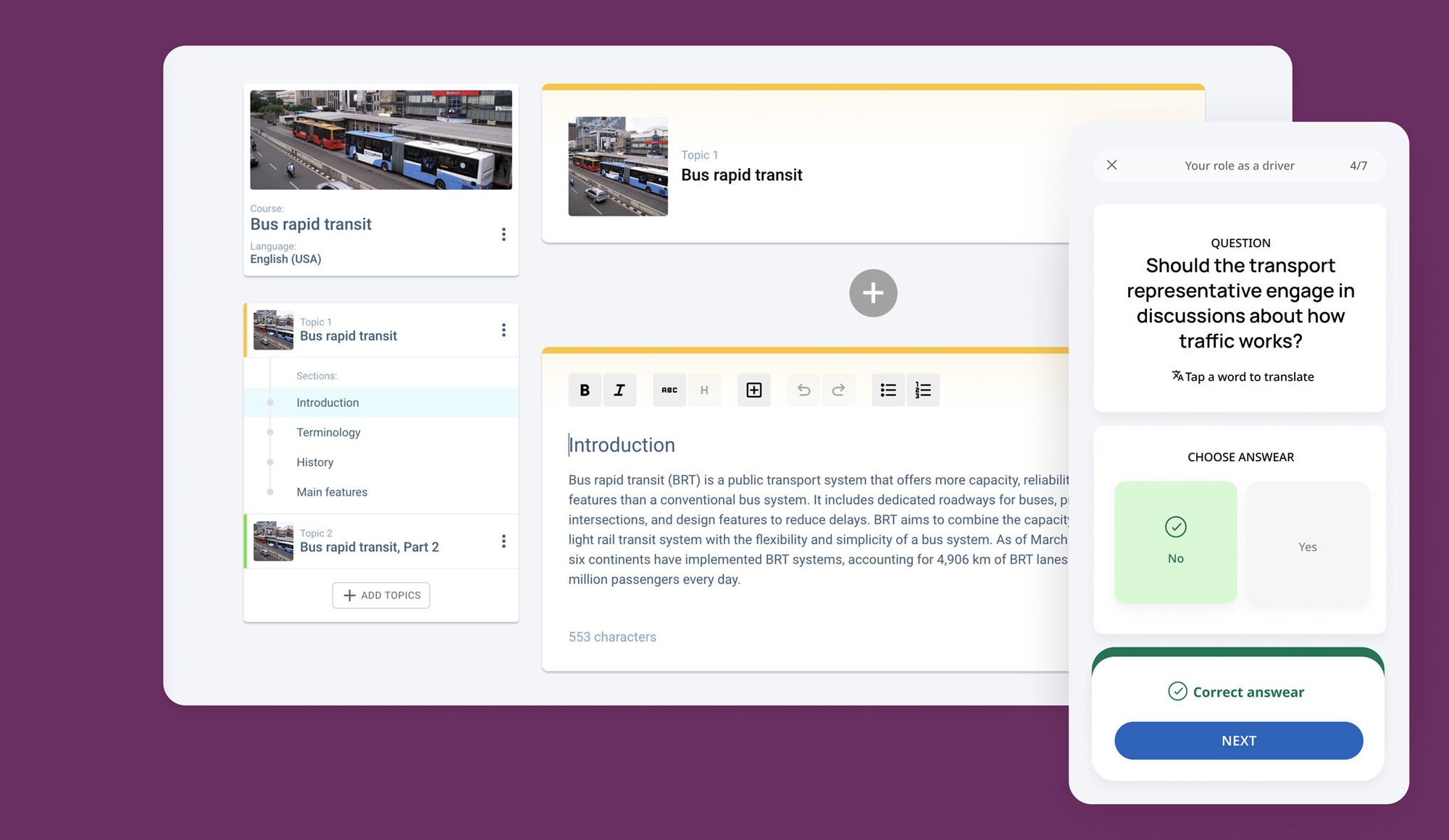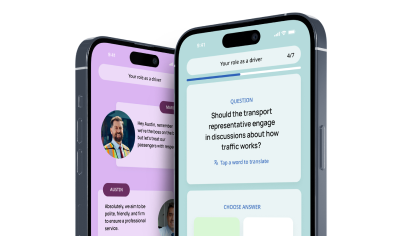Overview of the 15 skills essential for leading customer service teams in 2024
Customer service leaders in 2024 must develop various skills to handle evolving challenges and opportunities. Adaptability is crucial—leaders must quickly respond to changing customer needs and market trends while anticipating future shifts. Technological proficiency is no longer optional; leaders must leverage tools like automation, AI, and data analytics to streamline processes, enhance customer experiences, and drive innovation.
1. Emotional intelligence: Understanding and connecting with customers
Emotional intelligence is a fundamental skill that allows leaders to understand and connect with customers more deeply. By recognising and managing their emotions, leaders can empathise with customers and provide personalised support, fostering strong relationships and loyalty.
Influential leaders also teach their teams to develop emotional intelligence, enabling them to handle difficult situations with empathy and grace. By creating a culture of emotional intelligence, organisations can build stronger connections with their customers and enhance overall satisfaction.
Developing emotional intelligence involves self-awareness, self-regulation, motivation, empathy, and social skills. Leaders with high emotional intelligence can easily navigate complex social situations, making them more adept at understanding and meeting their customers' needs. This leads to increased customer satisfaction and boosts employee morale and productivity.
Furthermore, emotional intelligence plays a crucial role in conflict resolution. Emotionally intelligent leaders can effectively manage conflicts with customers constructively, turning potentially harmful situations into opportunities for growth and understanding. By demonstrating empathy and active listening, leaders can de-escalate tensions and find mutually beneficial solutions, strengthening the customer relationship.
2. Active listening: Hearing beyond words
Active listening is a critical skill and knowledge that leaders must possess to understand their customers honestly. It goes beyond simply hearing words; it involves paying attention to non-verbal cues, asking clarifying questions, and demonstrating genuine interest.
Leaders who effectively listen to customers gain vital insights into their needs, desires, and pain points. They can then provide tailored solutions, making customers feel heard and valued. Active listening also instils trust, as customers know they are being understood and supported.
Furthermore, active listening benefits customer relationships and enhances internal organizational communication. Leaders who actively listen to their team members foster a culture of openness and collaboration. Employees feel valued and respected, increasing morale, engagement, and productivity.
Moreover, active listening can uncover hidden issues or concerns that may not be explicitly stated. By tuning in to subtle cues and nuances in conversations, leaders can address underlying problems before they escalate, thus promoting a harmonious work environment.
3. Communication mastery: Clarity and confidence in every interaction
Clear and confident communication is an essential skill for customer service leaders. Leaders must be able to convey information effectively, both verbally and in writing, to ensure that messages are understood and actions are taken.
Strong communication skills enable leaders to articulate expectations, provide feedback, and motivate their teams. When leaders communicate with clarity and confidence, they instil trust and inspire team members to perform at their best, resulting in exceptional service delivery.
Effective communication involves not just spoken words but also nonverbal cues such as body language, tone of voice, and facial expressions. Customer service leaders should pay attention to these aspects to ensure their message is received positively and with the intended impact. Maintaining eye contact, using open and welcoming gestures, and speaking clearly and audibly are all important components of effective communication.
Furthermore, active listening is a crucial part of clear communication. Leaders should not only focus on speaking but also on understanding and empathising with their team members. By actively listening to their concerns, ideas, and feedback, leaders can build stronger relationships, foster a positive work environment, and address any issues effectively.
4. Problem-solving: Turning challenges into opportunities
Customer service leaders must be adept problem solvers who can navigate challenges and turn them into opportunities. They should have a solution-oriented mindset and seek creative ways to address customer issues and improve processes.
By encouraging their teams to think critically and offering guidance when needed, leaders learn to empower their employees to handle difficult situations independently. This resolves immediate issues and builds problem-solving skills that benefit both the team and the organisation in the long run.
One key aspect of effective problem-solving in customer service is the ability to anticipate potential issues before they escalate. Proactive leaders who identify patterns or trends in customer complaints can implement preventive measures to address these issues before they become widespread problems. This foresight enhances the excellent customer service experience and demonstrates a proactive approach to leadership.
Furthermore, problem-solving in customer service often involves collaboration across different departments within an organisation. Customer service leaders play a crucial role in fostering effective communication and cooperation between teams to address complex issues that may require input from multiple areas of expertise. By facilitating cross-departmental collaboration, leaders can streamline problem-solving processes and ensure a more holistic approach to resolving outstanding customer service issues.
5. Conflict resolution: Navigating difficult conversations with grace
Conflict is unavoidable in any customer service role, where differing perspectives and expectations can lead to challenging situations. In customer service, disputes often arise due to misunderstandings, unmet expectations, or conflicting priorities. Leaders within this domain must possess robust conflict-resolution skills to navigate these difficult conversations gracefully and professionally.
Effective conflict resolution resolves immediate issues, strengthens relationships, and fosters a culture of open communication and understanding. Leaders who adeptly navigate conflicts create an environment of respect and collaboration where all parties feel heard and valued. By addressing conflicts promptly and constructively, leaders can prevent escalation and maintain a positive atmosphere within the team.
Organisational leaders who excel in conflict resolution defuse tense situations and empower their team members to handle disputes effectively. By providing guidance and support in managing conflicts, leaders equip their employees with the new skills to address issues independently, ultimately enhancing customer satisfaction and loyalty. Moreover, a proactive approach to conflict resolution can uncover underlying issues and opportunities for improvement, leading to continuous enhancement of customer service processes and practices.
6. Time management: Balancing efficiency with quality service
Customer service leaders must master the art of time management to maintain a delicate balance between efficient customer service management and delivery and ensuring quality. Influential leaders and managers prioritise tasks, delegate responsibilities, and optimise resources to meet customer needs promptly without compromising service excellence. By managing their time effectively, leaders also set an example for their teams, inspiring them to be more efficient and productive.
Time management is about completing tasks quickly and ensuring that each customer interaction is meaningful and impactful. Leaders in customer service understand the importance of allocating time for personalised interactions beyond just resolving issues. This personal touch can significantly enhance the customer experience and build long-lasting relationships.
Moreover, in today's fast-paced business environment, time management is crucial in staying ahead of competitors. Customer service leaders who excel in time management are better equipped to handle sudden surges in customer queries or unexpected challenges, ensuring their team can adapt swiftly without compromising service quality. This adaptability is a crucial trait that sets exceptional customer service leadership teams apart in the competitive market.
7. Adaptability: Staying flexible
Leaders who embrace change and encourage their teams to be adaptable create a resilient and agile customer service organisation. They foster a service culture of continuous learning and improvement, ensuring the first delivery and service is always relevant, innovative, and aligned with customer expectations.
Furthermore, adaptability extends beyond responding to external factors in a dynamic service landscape. It also involves anticipating changes and proactively adjusting strategies and processes to stay ahead of the curve. This proactive approach can help organisations survive and thrive in a rapidly evolving market.
Influential leaders understand that adaptability is not just a skill but a mindset that needs to be cultivated within the entire team. By promoting a growth mindset and encouraging experimentation, leaders can empower their employees to embrace change and see challenges as opportunities for growth and development.
8. Customer-centricity: Putting the customer at the heart of every decision
Customer-centricity is the cornerstone of exceptional service. Leaders must prioritise the customer in every decision, from designing processes to setting performance targets. When leaders prioritise the customer, their team members do the same. This mindset shift results in a customer-centric culture where employees strive to create meaningful and memorable customer experiences, consistently exceeding their expectations.
Embracing customer-centricity goes beyond providing good service; it involves understanding your customers' needs and preferences on a deeper level. By collecting and analysing customer feedback, businesses can better tailor their products and services to meet their target market's demands, leading to increased customer satisfaction and loyalty.
Furthermore, companies that truly embrace the value of customer-centricity often see a positive impact on their bottom line. Satisfied customers are more likely to become repeat buyers and brand advocates, spreading positive word-of-mouth and attracting new business through referrals. This virtuous cycle of customer loyalty and advocacy can significantly boost a company's revenue and long-term success.
9. Leadership by example: Inspiring the team through action
Leadership by example is a powerful tool for inspiring and motivating teams. Leaders must embody the values, behaviours, and standards they expect from their employees. Leaders who lead by example create a positive work environment where everyone feels encouraged to uphold high service standards. By consistently demonstrating exceptional leadership qualities, leaders empower their teams to perform at their best and deliver outstanding customer service.
Furthermore, leadership by example goes beyond setting a good precedent. It also fosters a culture of accountability and integrity within the organisation. When team members see their leaders actively living out the values they preach, it instils a sense of trust and respect. This trust is essential for building solid relationships with key members within the team and ensuring effective communication and collaboration.
Moreover, leading by example can have a ripple effect throughout the organisation. When employees witness their leaders displaying dedication, passion, and a strong work ethic, they are more likely to mirror these behaviours in their roles. This boosts morale and productivity and creates a sense of unity and shared purpose among team members, driving them towards common goals and objectives.
10. Coaching and mentoring: Developing the next generation of customer service leaders
Influential customer service leaders understand the importance of developing the next generation of leaders. They invest time and effort in coaching and mentoring their employees, helping them grow professionally and personally. By providing guidance, feedback, and opportunities for growth, leaders foster a culture of continuous development within their teams. This ensures a pipeline of capable leaders and creates a nurturing environment where employees feel supported and valued.
11. Digital literacy: Leveraging technology to enhance customer service
In today's digital era, customer service leaders must possess digital literacy skills. They must understand and leverage technology to enhance service delivery and meet customers' evolving expectations. Leaders proficient in digital tools and platforms can streamline processes, enable seamless communication, and deliver personalised service at scale. By embracing technology, leaders empower their teams to provide exceptional service in a digital-first world.
12. Cultural competence: Serving a diverse customer base with respect
As customer bases become more diverse, cultural competence is an essential job skill for customer service leaders. They must be sensitive to cultural differences and adapt their communication and service approach accordingly. Leaders who promote cultural competence create an inclusive environment where all customers feel valued and understood. They also ensure that diversity and inclusion are reflected in the composition of their teams, fostering a rich tapestry of perspectives and ideas.
13. Performance management: Setting and achieving service excellence
Customer service leaders are crucial in setting and achieving customer service excellence. They define clear performance expectations, monitor progress, and provide feedback to help their teams continuously improve. By establishing metrics and goals, leaders create a performance-driven culture that motivates employees to strive for excellence. They also recognise and celebrate achievements, reinforcing team members' sense of accomplishment and pride.
14. Resilience: Maintaining composure in challenging situations
Customer service leaders face various challenges daily. Resilience is the ability to maintain composure and navigate these challenges without compromising the quality of service. Leaders who demonstrate resilience are role models for their teams, showing them how to stay calm under pressure, adapt to unexpected situations, and find creative solutions. By fostering resilience, leaders enable their teams to deliver consistent and exceptional service, even in adversity.
15. Continuous improvement: Always striving for better service
Customer service leaders must foster a culture of continuous improvement within their teams. They should encourage feedback from external customers, evaluate processes, and identify areas for enhancement. By promoting a mindset of constant improvement, leaders inspire their teams to innovate and strive for better ways of serving customers. This leads to a continuous drive for excellence, ensuring that the organisation stays ahead of the competition and the company continues to provide superior service.



